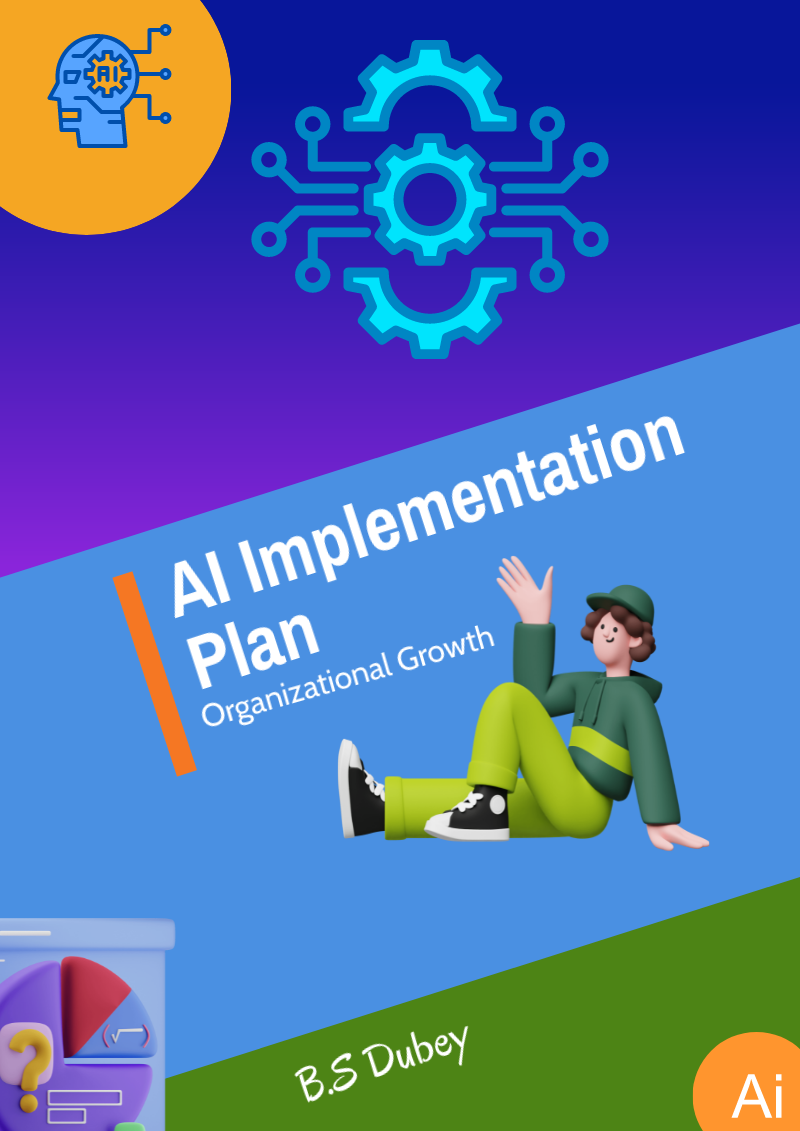AI Implementation Plan
AI Implementation Plan: Organizational Growth
Introduction Artificial Intelligence (AI) is transforming businesses across various industries. This infographic provides a structured approach to implementing AI, focusing on achieving organizational growth. The introduction emphasizes the importance of a well-defined AI implementation plan to navigate the complexities and leverage the full potential of AI technologies.
AI Goals & Objectives Establishing clear goals and objectives is crucial for successful AI implementation. This section outlines the key aims, including:
- Increased Efficiency: Streamlining operations and reducing manual processes.
- Enhanced Customer Experience: Using AI to personalize customer interactions and improve satisfaction.
- Data-Driven Insights: Leveraging AI for better decision-making and strategic planning.
AI Technologies & Tools Choosing the right technologies and tools is essential for effective AI deployment. The infographic dives into the various AI technologies that can be utilized, such as machine learning algorithms, natural language processing, and predictive analytics. It also highlights the importance of selecting tools that align with the organization’s specific needs and capabilities.
Implementation Strategy A robust implementation strategy is vital for integrating AI into business processes. This section provides a step-by-step guide, including:
- Roadmap Development: Creating a detailed roadmap that outlines the timeline, milestones, and resources required.
- Stakeholder Engagement: Involving key stakeholders to ensure alignment and support throughout the implementation process.
- Pilot Programs: Running pilot programs to test AI solutions and gather feedback before full-scale deployment.
Data Management & Security Data is the backbone of AI systems, making data management and security a top priority. This section addresses the need for:
- Data Quality: Ensuring the accuracy and reliability of data used in AI models.
- Data Privacy: Implementing robust data protection measures to safeguard sensitive information.
- Compliance: Adhering to legal and regulatory standards related to data use and AI applications.
Summary & Conclusion The infographic concludes with a summary that recaps the critical elements of an AI implementation plan. It emphasizes the importance of a strategic approach, continuous monitoring, and ongoing optimization to ensure the successful adoption and integration of AI technologies. The final message encourages organizations to embrace AI as a driver of growth and innovation, while also being mindful of ethical considerations and potential challenges.


